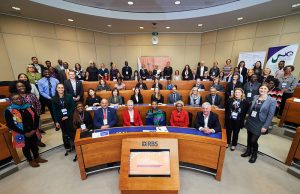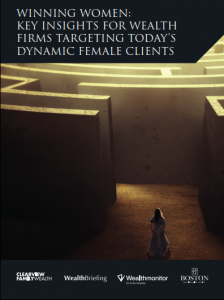Opportunities and Challenges for Equity, Inclusive Growth, and Sustainability

Women’s Economic Empowerment: Opportunities and Challenges for Equity, Inclusive Growth, and Sustainability Conference. PIC © Malcolm Cochrane Photography
Washington, DC December 2019. Women’s Economic Empowerment: Opportunities and Challenges for Equity, Inclusive Growth, and Sustainability were topics discussed during the first international women’s economic empowerment conference held in November in Edinburgh, Scotland.
Hosted at the Royal Bank of Scotland (RBS) Gogarburn Business School, the conference was presented by Women’s Economic Imperative (WEI), the global collaborative initiative, in partnership with Women’s Enterprise Scotland (WES), the community interest company which focuses on the contribution women’s enterprise makes to the Scottish economy.
The conference gathered international speakers, thought leaders and change makers representing civil society, academia as well as private and public sectors from across the globe. It focussed on sharing knowledge, engaging participants in active dialog, and catalysing concrete actions to help advance women’s economic empowerment. Driving the agenda were the United Nations’ Sustainable Development Goals (SDGs), the work of the United Nations Secretary-General’s High-Level Panel on Women’s Economic Empowerment, and the outcomes of the T-20 Task Force on Gender Economic Equity.
Participants heard from women who have broken cultural and industry barriers as they progressed careers in sectors such as technology, medicine, aviation, and finance. Speakers included technology evangelist Professor Sue Black; Kenyan Airways Captain and first female African Dreamliner pilot, Captain Irene Koki Mutungi, and the Hon. Luis Guillermo Solis Rivera, Former President of Costa Rica and Co-Chair of the UN Secretary-General’s High-Level Panel on Women’s Economic Empowerment. Prominent Scottish and global industry leaders such as Malcolm Buchanan, RBS Chair of Scotland Board; Keith Skeoch, CEO Standard Life Aberdeen, the Rt Hon. Lord McConnell of Glenscorrodale and Ann Cairns, Executive Vice Chairman, Mastercard were joined by leading global academics, businessmen and women, and international diplomats to share findings and discuss best practices.
The two-day conference broke new ground in advancing the discussion on gender at the intersection of economics, politics, geography and health. It culminated in a commitment for action from several sectors including health, technology, finance, enterprise and education, as it focused on the importance of concrete actions across societies, industry and governments. Hon Luis Guillermo Sallis Rivera emphasized in his keynote speech that the seven key drivers of economic empowerment are relevant across all sectors and geographies, whether it is industry or health; at home or in the workplace. From tackling adverse norms and promoting positive role models; ensuring the right legal protection; recognising unpaid work and care; building and owning financial and digital assets to empower economically, to changing mind-sets and behaviours, and eliminating barriers in cultures, the work place and markets.
Dr. Margo Thomas, Founder and President of WEI explained, “We all know the key issues and drivers of women’s economic empowerment. We must focus now on actions. As a global organization, WEI, with the support of our WEI Board and Advisory Council, is leveraging its global networks, affiliations, and partnerships to share knowledge, craft solutions, and catalyse concrete actions to help advance women’s economic empowerment and the Sustainable Development Goals (SDGs) for the benefit of all.”
In welcoming the conference attendees to Edinburgh during the opening reception at City Chambers, the Right Honourable Lord Provost of Edinburgh noted that Scotland is making strides in creating an environment where more women and girls can start up in business and thrive
Carolyn Currie, Chief Executive, Women’s Enterprise Scotland explained that “As a catalyst for economic growth and inclusion, WES works to create an environment where women can start up in business and thrive. The simple fact is that more women-owned businesses in Scotland means more money for the economy. Research shows that women-owned businesses already contribute a staggering GBP 8.8 bn into the economy every year and have created over 230,000 jobs in local communities across Scotland.”
WEI was established in 2018 in response to the call to action of the United Nations High-Level Panel on Women’s Economic Empowerment. Since its launch, WEI has embarked on several global initiatives focussing on innovation, enterprise and trade, spearheading action to create and grow sustainable economic opportunities for women.
Women’s equality and empowerment is one of the United Nations’ 17 SDGs and is central to all aspects of inclusive and sustainable development. The G20, leaders of the most powerful 20 countries in the world, made this commitment at their summit in Osaka in June 2019: “Gender equality and women’s empowerment are essential for achieving sustainable and inclusive economic growth. We reconfirm their importance in all aspects of our policies and as a cross-cutting issue at upcoming Summits.” However, according to the SDG Index research, no country is currently on track to achieve all SDG’s by 2030[1].
The platinum sponsors of the conference were The Royal Bank of Scotland, Standard Life Aberdeen and Mastercard. Additional sponsors included AllAfrica, the University of Glasgow Adam Smith Business School, Newcastle University Business School, Durham University Business School, Portsmouth University and Business Gateway Edinburgh, among others.
[1] Berteslmann Stiftung and Sustainable Development Solutions Network (2018) viii
Ends
Notes to Editors
- Women’s Enterprise Scotland (WES) works to create an entrepreneurial environment where women-led businesses can flourish. WES collaborates with other business support organisations to help close the gender gap in enterprise
- Research shows that women-owned businesses in Scotland contribute £8.8bn into the economy every year and have created over 230,000 jobs[1]
- WES is a member of the T20, the think tank and “ideas bank” of the G20 and participated in the T20 Summit in Tokyo in 2019 and in Buenos Aires in 2018
- Dr Margo Thomas, founder of WEI, is the co-Chair of the Gender Economic Equity workstream of the T20
- WEI is a global, collaborative initiative to promote women’s economic empowerment and was founded in January 2018 as a response to the Call to Action of the United Nations Secretary-General’s High-Level Panel on Women’s Economic Empowerment.
- WEI seeks to catalyze and advance the transformative work of empowering women as economic actors globally through Entrepreneurship, Advocacy and Thought Leadership
- Full text of the G20 Osaka Leaders’ declaration https://www.japantimes.co.jp/news/2019/06/29/national/full-text-g20-osaka-leaders-declaration/#.XRspdS2ZOb8
- Details of conference speakers and biographies can be found here https://www.weiforward.org/conference/
Women’s Economic Imperative
@WEIFORWARD
[1] ‘Supporting Women’s Enterprise in the UK; the Economic Case’, FSB (2018)

